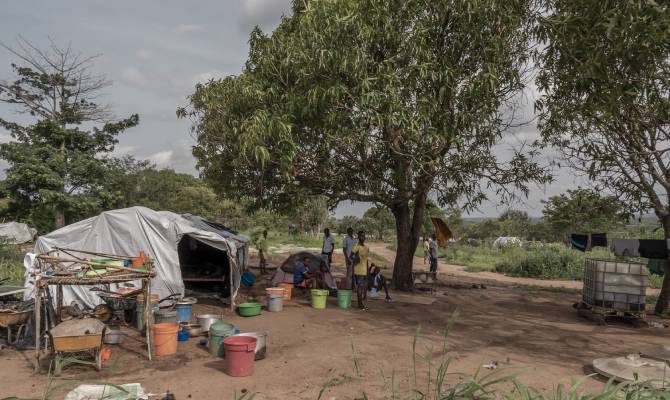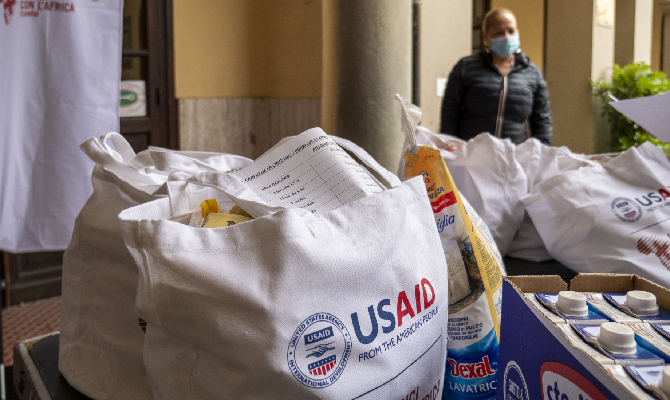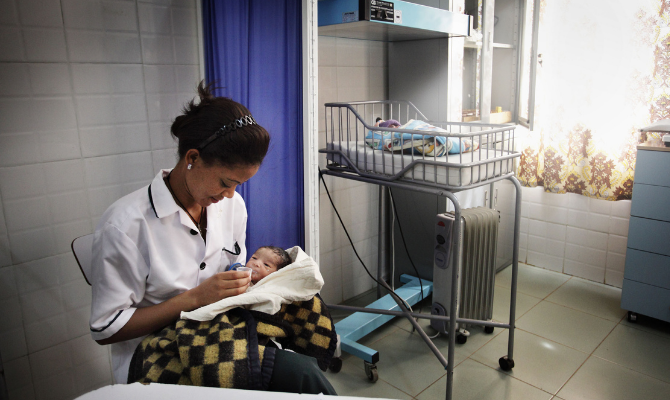«I have long carried out that feeling of shame before speaking out and seeking support – said Yvon, 36 years-old from Cabo Delgado. – but I believe we have all gone through some sort of violence just because we are women. Aquiring awareness on this, helped me realize gbv is the elephant in the room and it is only by speaking out that we can dismantle the taboo and help other women raise their voce».
Yvon is a 36 years-old woman from Muidumbe, northern Cabo Delgado, Mozambique. In 2022, due to the insurgencies in the northern province of Cabo Delgado, she fled her home to Pemba together with her partner and 5 kids.
For 7 years, the province of Cabo Delgado has been a conflict zone, with about 834,304 internally displaced people. Most have experienced or witnessed extreme violence including killings, sexual violence, kidnappings, extortion, and villages being burnt. Some have lost their entire family.In this context of displacement and conflict, gender-based violence is among the major safety problems.
«We had no place to go when we left Muidumbe, as we arrived in Pemba we had to find a way for living. Everything was difficult and soon my husband started blaming me» said Yvon recalling how she entered in a series of psychological violence that later resulted in physical aggression.

The risk factors underlying GBV are multiple, interrelated, and mutually reinforcing. These include individual factors, such as young age or illiteracy; societal factors, such as poverty, unemployment, and displacement; behavioral factors, such as alcohol and substance use; and environmental factors, such as complex emergencies, armed conflicts, and impunity. These factors worsen during crises, resulting in an increase in GBV cases, disproportionately affecting vulnerable groups such as IDPs, women, and young girls.
Intimate partner violence can have severe short- and long-term physical and mental health effects, including injury, depression, anxiety, unwanted pregnancies, abortions, sexually transmitted infections, and worse. GBV can affect social well-being, leading to loneliness, social withdrawal, and a sense of victimhood in the affected person.
In the city of Pemba and the district of Montepuez, in Cabo Delgado province, Doctors with Africa CUAMM addresses gender-based violence with a multisectoral and community-based approach. Within safe spaces (casa de proteção) for women and girls, CUAMM teams conduct awareness-raising activities on GBV and the prevention of sexual exploitation and abuse (SEA) using various methodologies such as theater, community dialogues, workshops, and more.
«By engaging women and young girls who have experienced gbv in social activities we aim to overcome the social emargination in which they often end up living because of the stigma and that sense of ashame that can have long-term psychological damages» explained Lúcia Maria de Fatima Henriques, CUAMM psychologist.

Photo by Marco Trovato
CUAMM’s intervention in the province combines operational research and field actions to provide psychological support (MHPSS) and integrated clinical and legal assistance to victims of gender-based violence (GBV) in collaboration with government legal services and the Mozambican association MULEIDE.
«We work to assist women and young girls throughout the process, from the reporting to court, offering also health assistance and psychological support – explained Isefa Sufo, CUAMM Legal Assistant -. We have trained local authorities on gbv management case and the collaboration is good but we do know that the process can be extremely long and exhausting for the survivor and it is our duty to inform them» stated Isefa.
From 2021 to the present, CUAMM has been working to mitigate GBV risks and improve responses for survivors, actively involving communities, raising public awareness, and addressing the urgent need to provide integrated services. Today there are 12 supported safe spaces in Cabo Delgado that offer care, psychosocial support, and information for other services related to safety and health needs. There were 900 people supported in 2023 for GBV or MHPSS (Mental Health and Psychosocial Support). Over 60 women have been supported and legally assisted to date.
«We have seen improvements over the last years, when we started gbv was not a priority on the agenda, not even something the civil society was interested in but things are changing – said Elisa Fernando Tembe, CUAMM Project Manager -. In the long-run we’d like to enrich the service ensuring a safe place to live to the survivors who suffer perpetrated domestic violence».
Objectives of the Intervention:
- Improvement of Access to GBV and SEA (Sexual Exploitation and Abuse) Services in line with international guidelines, the intervention aims to facilitate survivors’ access to services by covering costs such as transportation and medications, providing hygiene kits, and, in some cases, integrating the most vulnerable individuals into an economic support system.
- Enhancement of Mental Health Services targeting at-risk individuals, especially women and young girls who have survived gender-based violence. In collaboration with local health authorities, after referring the most sensitive cases to government mental health services, the Cuamm team ensures regular follow-up and involvement in age-, gender-, and context-specific group activities conducted within safe spaces.
- Prevention and Preparedness for Managing GBV and SEA Cases through safety audits in intervention areas, the activity aims to strengthen services offered in coordination with the Ministry of Health, the Provincial and District Directorate for Gender, Children, and Social Action, as well as the Technical Working Group on Psychosocial Support and Mental Health.
Gender based violence at glance
Gender-based violence is a human rights violation perpetrated by an aggressor against a person because of their gender or sex. The United Nations defines violence against women as “any act of gender-based violence that results in, or is likely to result in, physical, sexual, or mental harm or suffering to women, including threats of such acts, coercion or arbitrary deprivation of liberty, whether occurring in public or in private life.” The most prevalent form of gender-based violence is committed by intimate partners (Intimate Partner Violence). Globally, it is estimated that, on average, 27% of women aged 15 to 49 have experienced violence by an intimate partner (IPV) or a non-partner during their lifetime and millions are those affected by other forms of gender-based violence, such as child, early, and forced marriage, sex trafficking, and harmful traditional practices. The highest prevalence of GBV globally is reported in the regions of Africa and Oceania.
According to a recent report by the Secretary-General of the United Nations “Sexual and Conflict-Related Sexual Violence” for the year 2022, the countries where this violation of human rights is most widespread are the Central African Republic, South Sudan, Democratic Republic of Congo, Mozambique, Ethiopia, just to mention sub-Saharan Africa.





